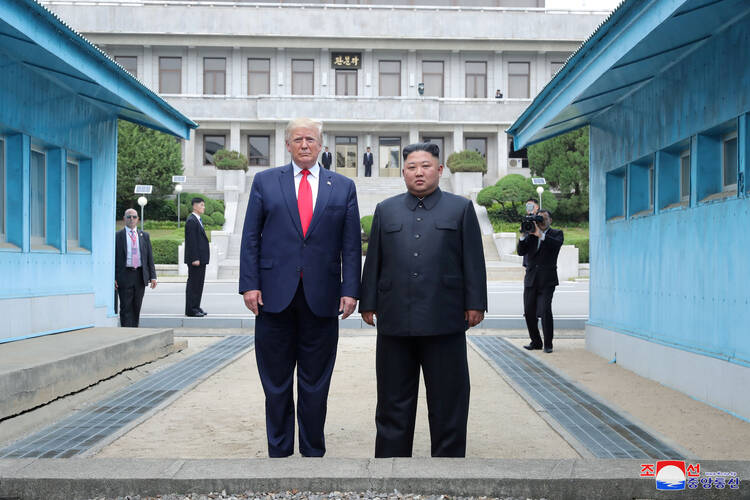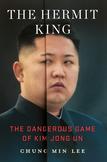Review: Kim Jong Un is ruthless, not deranged
Chung Min Lee puts it succinctly: The Democratic People’s Republic of Korea is the world’s largest jail, with 25 million inmates. And in Earth’s Paradise, existence is bleak: precious resources are spent maintaining autocratic ruler Kim Jong Un’s power by accruing nuclear power while neglecting basic needs. People literally starve while they lavish public adulation upon The Dear Leader, who is a scion of a criminal dynasty that has cowed the Hermit Kingdom for 75 years. Life in the upper half of the peninsula is literally “blacked out”; space satellites reveal that there are no signs of life—or light—at the dusk of the day, marking a stark contrast with the vibrant, democratic lower half.
Lee, the author of The Hermit King: The Dangerous Game of Kim Jong Un, a study of the North Korean dictator, is a senior fellow at the Carnegie Endowment for International Peace as well as South Korea’s former ambassador for national security affairs. Thus, he is well-equipped to provide Westerners with an insider’s view of this “king”; and as the subtitle suggests, he analyzes the “dangerous game” Kim Jong Un is playing in order to simultaneously cement his control on power and modernize his society (to the extent that he can without ceding control). He does this while craving international legitimacy as a player on the world stage, as seen with his engagements with leaders from China, Russia, South Korea and especially the United States. Lee reveals Kim Jong Un for what he is: “ruthless and sharp,” an operator who is far from being “deranged.”
Kim Jong Un easily dispatches those whom he sees as a threat to his power, including those in his entourage, be it a relative or some governmental personage, like a general.
Like all dictators, Kim employs the traditional terrorizing methods to make sure he stays on top. Wild speculation recently in the international media about his supposed ill health (or whether or not he was even still alive) showed that, like his father and grandfather, he is dedicated to maintaining strict control over North Korean media. He easily dispatches those whom he sees as a threat to his power, including those in his entourage, be it a relative (like his half-brother or his father’s brother) or some governmental personage, like a general. If they are in the way, they are soon out of the way. He will do whatever it takes to achieve his aims, whether it is utilizing public relations techniques, personal chemistry, his Western education and even using his sister as a roving ambassador, all of which, Lee notes, make him more formidable and worrisome.
Whatever course Kim Jong Un embarks upon will have major implications for the Korean peninsula, Asia and the wider world. Kim dreams of turning North Korea into something like China and Vietnam, former socialist countries that have used modern markets to raise their economic output and standard of living. But Lee identifies the major conundrum Kim Jong Un faces: In order to do this, he has to lessen his grip on power to the extent that needed economic reforms can happen—and that is one risk he is unwilling to take.
This article also appeared in print, under the headline “Ruthless, not deranged,” in the May 11, 2020, issue.









